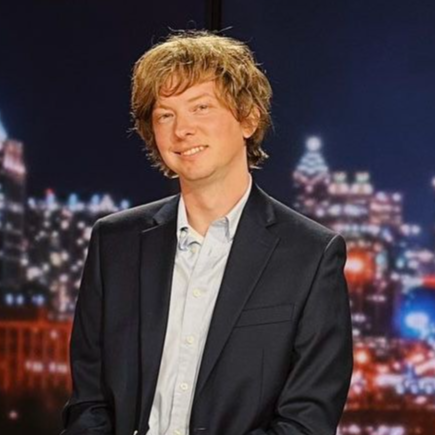Braves payroll will increase, but that doesn’t mean Harper or Machado

The Braves will have an increased payroll for 2019, general manager Alex Anthopoulos confirmed Monday. And they’ll be advantageous in exploring avenues to maximize that flexibility.
After trading Matt Kemp – and his hefty salary that was roughly $36 million over two seasons – for a plethora of expiring deals, the Braves were expected to have an active winter, even before the team surprised with 90 wins and a National League East title.
“The payroll will go up for the current year,” Anthopoulos said. “There’s been a lot of debate about where we’re going to be, what the number is going to be, how much we have available. I don’t think anyone in this room knows because I don’t know. We don’t have a payroll number set for next year yet.”
The exact number isn’t necessarily relevant to those outside the organization because the team won’t spend to its ceiling. Arbitration raises are an unknown, as are potential arbitration-eligible acquisitions and non-tender candidates that will affect the financial number. The Braves will likely hold some leeway for possible in-season moves.
What matters is the Braves have a handsome sum available to allocate as they choose, surely north of $50 million, which gives them ample room to add an expensive free agent, well-compensated trade acquisition or spread the wealth to plug several holes.
“We will have a good amount of money to work with,” Anthopoulos said. “For the world to know how much we have would make for difficulties negotiating trades and free-agent contracts. There’s just no upside for us to divulge that stuff.”
Makes sense, especially if one believes the persisting rumors that the Braves are going big-game hunting.
They’re in a unique position. Their best players are under team control for multiple seasons. Their dead money is off the books. They’re still raking in the new-ballpark cash.
Such circumstances invite speculation that the Braves will pursue outfielder Bryce Harper and/or shortstop Manny Machado, two of the most celebrated free agents in recent memory. Both of whom are expected to garner record deals.
It’s easy to imagine a dynamic outfield including Ronald Acuna and Harper, or plugging Machado next to Freddie Freeman in the lineup. Realistically, even with newfound riches, the Braves might not be inclined to such steep commitments.
“We’ve looked at the free agent market quite a bit,” Anthopoulos said. “We don’t know yet where the market’s going to go, the value’s going to be. There’s the obvious big names at the top, but I don’t know, for our club, with what we have, that the value’s going to be there in the free agent market. Doesn’t mean it won’t. We’ll certainly explore it. But if I have to sit here in the middle of October, I would guess more likely the trade route.”
Put down the pitchforks and open the doors for trade conjecture. If the Braves elect not to bid heavily in the market, or get swept away in their attempts to do so, the trade market is a nice buffer.
The Braves have more prospect assets than they do spending power. Few, if any teams in baseball could outbid the Braves if it came down to it.
Anthopoulos acknowledges it’s not ideal. He doesn’t want to diminish such a well-versed farm system. But he’d rather cash in prospects than, as he explained it, sign a contract including two good years and five bad ones attached.
“There’s been a lot of expectation because we freed up those Matt Kemp dollars in 2019 that we would allocate that exact salary to one good player,” Anthopoulos said. “That could happen. But we’re still going to evaluate every deal, whether it’s trade or free agent, on the merits of that deal alone. We’re not going to walk into the store because we have money in our pockets and just buy.”
A wise approach – reckless buying was one prompt for the Braves’ complete teardown four years ago. Flexibility is power, and the Braves aren’t going to throw that away just to appease an understandably frustrated fan base that’s ready to see their team spend.
Enter the trade market. In Toronto, Anthopoulos built a reputation for being an aggressive dealer, one who’s opportunistic when coveted players enter play. He’s yet to flex those muscles in the south, but he very well could’ve at July’s trade deadline.
“We offered up some pretty good young players in deals we couldn’t get done,” he said. “We made some bigger name prospects available in trades that got asked about. I think where we hit a snag was the quantity. That’s where we couldn’t get a deal across the goal line.”
The GM, entering his first full offseason with the Braves, has familiarity and comfort with his system that was simply impossible last offseason, when he assumed the role in November.
Expect Anthopoulos’ Braves to be aggressive, but they aren’t going to force the issue. Rest assured payroll will go up, the organization will dip into the heavy-hitter’s pool, and the team will come away better than it was in 2018.
That probably won’t include Harper, but it should feature further depth with another couple key pieces. They need a right fielder and catcher, and the incumbent-turned-free agents, Nick Markakis and Kurt Suzuki, are quality fallback options (if that’s how the team views it).
“If we don’t find the right deal we like, there’s still other opportunities to shop,” Anthopoulos said. “It could be next season, in season, next offseason; you start signing guys to big, long deals, if you feel good about the deal you do it now. I wouldn’t force a deal right now that would limit you for years to come.”



